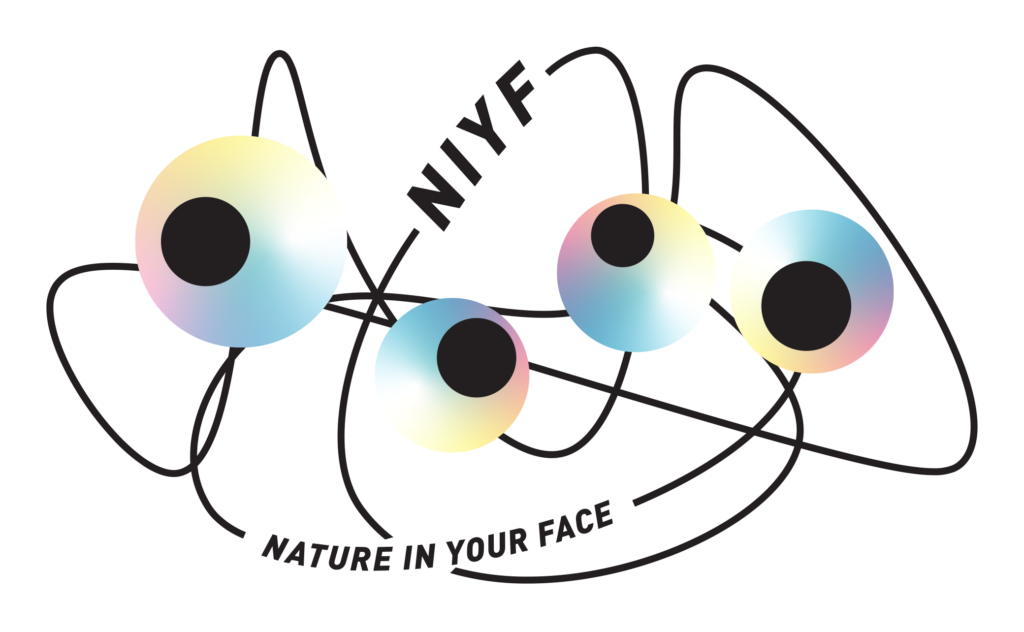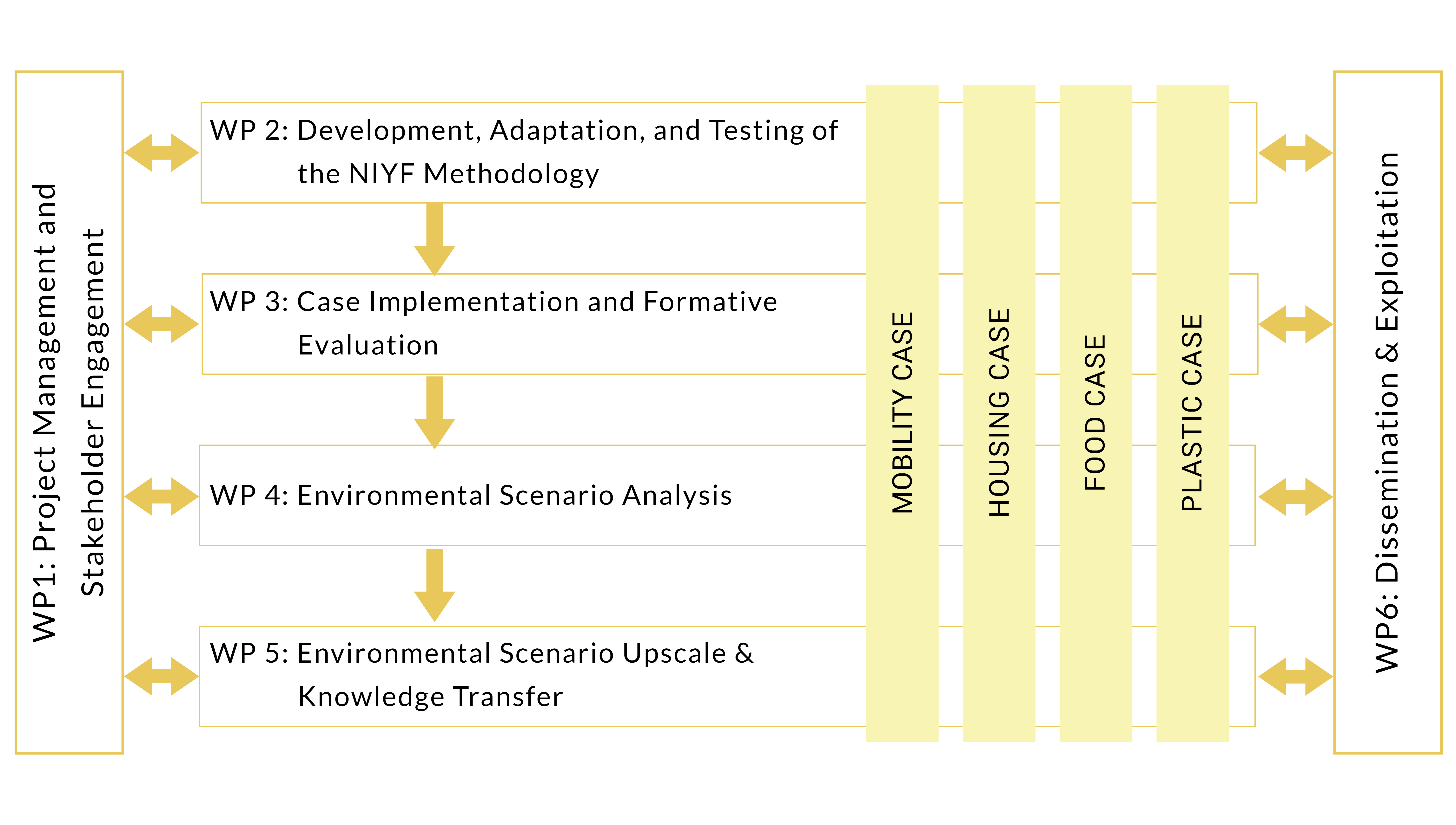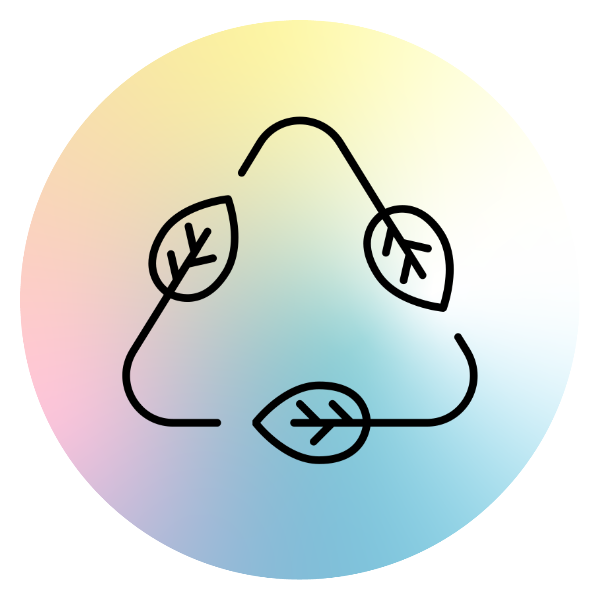About the research
Nature In Your Face .
Nature in Your Face (NIYF) is a research project where we develop and test a methodology to stimulate transformative societal change in a co-constructive way together with citizens and stakeholders from the civil, public, and private sectors.

A robust body of literature indicates why global climate change is difficult for humans to address. Part of the explanation is that causes and effects are dissociated in time and space; the climate system is highly complex and non-linear, and climate change manifests in events that humans have dealt with for thousands of years (e.g., floods, droughts, etc.). The magnitude of the issue makes individuals feel incapable of taking meaningful actions.
Photo: Tan Danh

The project explores the potential of disruptive communication elements to push citizens and stakeholders out of their comfort zones and into creative and radical modes of re-creating futures

At the same time, there is a growing focus in behavioral science on nudging and gamification techniques. The attractiveness of these approaches might be due to their limited invasiveness into people’s lives and low political implementation costs.
Although such methods deserve their place in the climate policy toolbox, we strongly contest that such measures alone can achieve a fast and fundamental shift of lifestyles and societies. We argue that people need to step or be pushed out of their comfort zones to become creative and – together with other people – develop, negotiate, and implement radically new solutions.
Photo: Cottonbro
Our
Objectives .
The main objective of NIYF is to stimulate societal engagement through deliberately confronting citizens and stakeholders with unexpected and potentially upsetting appearances of nature, climate effects, or carbon-neutral lifestyle scenarios in an artistic way.
This is followed up with a structured process of co-creating action capacity in local communities through inclusive vision workshops (in which future lifestyles are explored and negotiated), thus removing barriers and changing attitudes and behaviors.
Photo: Noah Buscher

Our
Methodological Approach .
NIYF triggers societal engagement and transition, addressing the need for studies that include diverse interests and stimulate sharing responsibilities. NIYF is transdisciplinary in nature and combines social science, humanities (art), and environmental science, and involves a large group of local and national stakeholders. We aim at providing new, participative models for the path towards carbon neutrality and help overcome barriers for change by disrupting established systems of meaning and behavioral practice.
The CO2 emission reduction effects achieved are quantified in each of the case by Life-Cycle Assessment (LCA) based environmental scenario analyses, also assessing the upscaling potential. We develop a methodology of engagement in an action-research based approach to generate new, implementable methods to enable fast and substantial change. The effects of the case study actions will lead to new policy instruments which are also evaluated formatively.

Figure: WP structure in NIYF
NIYF builds on a comparative study of four cases to demonstrate that the methodological approach is applicable in different domains: Mobility, Housing, Food and Plastic (Neutrality).
NIYF quantifies the CO2 emission reduction effects achieved in each of the cases by state-of-the-art Life-Cycle Assessment (LCA) based environmental scenario analyses, also assessing the upscaling potential.
Our
Research Publications .
Short title: “Using Transformation Experiences to Spur Reflections “
Published in: ECEEE Summer Study Proceedings; Sustainable Communities
When: 6-15 June 2024
Author: Löfström & Santandrea
https://www.eceee.org/library/conference_proceedings/eceee_Summer_Studies/2024/5-sustainable-communities/using-transformative-experiences-to-spur-reflections-on-our-role-in-the-eco-system-a-proof-of-concept/
Title: “Disruptive Environmental Communication”
Published by: Springer, Book in the Psychology and the Planet Book Series
Authors: Klöckner &Löfström
When: 2022
https://link.springer.com/book/10.1007/978-3-031-17165-9
Short title: “Enhancing Human Nature: Reconnecting humans to the ecosystem “
Published in: ECEEE Summer Study Proceedings; Dynamics of Consumption
When: 6-11 June 2022
Authors: Löfström & Svanæs
https://www.eceee.org/library/conference_proceedings/eceee_Summer_Studies/2022/1-dynamics-of-consumption-less-is-more/enhancing-human-nature-reconnecting-humans-to-the-ecosystem/
Short title: “Disruptive Communication as a Means to Engage Children in Solving Environmental Challenges”
Published in: Front. Psychol.
When: Front. 16 September 2021
Authors: Löfström, Richter & Nesvold
https://doi.org/10.3389/fpsyg.2021.635448
Short title: : Nature in Your Face – Disruptive Climate Change Communication and Eco-Visualization”
Published in: Front. Psychol.
Authors: Löfström, Klöckner & Nesvold
When: 18 December 2020
https://doi.org/10.3389/fpsyg.2020.568068



